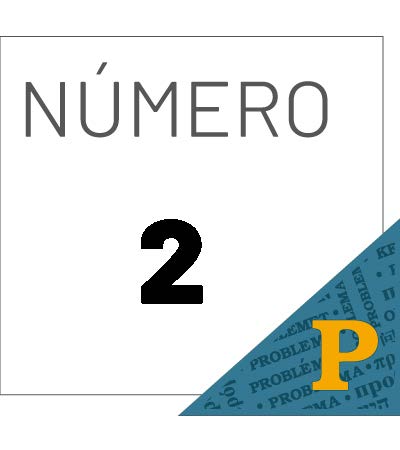The Spatio-Temporality of Objectification in Legal Theory: Concepts of Legality Between Theory and Practice
Contenido principal del artículo
Resumen
En este artículo se sostiene que los conceptos de legalidad, dentro de la teoría del derecho, pueden entenderse con mayor provecho si se piensa que están determinados por modos de objetivación espacio-temporal. En la primera parte se presenta un esquema de tales modos y, de esa manera, se ofrece un mapa de las investigaciones iusfilosóficas. En la segunda parte, se analizan dos conceptos de legalidad —determinados por dos modos diferentes de objetivación espacio-temporal—. El análisis muestra cómo ambos conceptos de legalidad conducen a diferentes conjuntos de fuentes prescriptivas para la evaluación y el diseño de los sistemas jurídicos. Finalmente, se sostiene que la respuesta de la teoría del derecho a los problemas prácticos del ámbito público no puede basarse en un solo concepto de legalidad. Por el contrario, es necesario ser pluralistas sobre los conceptos de legalidad y reconocer las limitaciones de cada uno de ellos —representados, en este ensayo, por la objetivación espacio-temporal que los suscribe—. No se puede asegurar que la teoría del derecho esté en crisis sobre la base de una presunta falta de correspondencia entre algún concepto de legalidad y la realidad. Por el contrario, aquella se generará en la medida en que la teoría del derecho llegue a estar dominada por un imperialismo teórico, a saber, por la creencia de que cualquier concepto de legalidad es capaz de capturar el mundo tal como es, y, por lo tanto, que es capaz de erigirse como fundamento para una agenda prescriptiva. El vicio de un imperialismo teórico induce una inquietud sobre la identidad de una disciplina, y conduce a sofocar la diversidad teórica que se requiere para dar una respuesta ética a la complejidad concreta del ámbito público.
Abstract:
This paper argues that concepts of legality in legal theory can be profitably understood as being underwritten by modes of spatio-temporal objectification. In the first part of the paper, a scheme of such modes is provided, and a map of jurisprudential inquiries is thereby offered. In the second part of the paper, two concepts of legality – underwritten by two different modes of spatio-temporal objectification – are analysed. The analysis shows how both concepts of legality lead to different sets of prescriptive resources as to the evaluation and design of legal systems. Finally, it is argued that the response of legal theory to practical challenges within the public sphere cannot afford to be based on any one concept of legality. Rather, we need to be pluralists about concepts of legality, recognising the limitations of any one such concept – represented, in this paper, by way of spatio-temporal objectification that underwrites those concepts. A crisis in legal theory can- not be claimed on the basis of any alleged lack of correspondence between any one concept of legality and reality. On the contrary, a crisis will ensue to the extent that legal theory becomes dominated by theoretical imperial- ism, namely, by the belief that any one concept of legality is capable of capturing the world as it is, and, therefore, also capable of standing as a foundation for a prescriptive agenda. The vice of theoretical imperialism in- duces anxiety over the identity of a discipline, and leads to a quelling of the very theoretical diversity that is required for an ethical response to the spe- cific complexity of the public sphere.
Detalles del artículo
Uso de licencias Creative Commons (CC)
Todos los textos publicados por Problema. Anuario de Filosofía y Teoría del Derecho sin excepción, se distribuyen amparados bajo la licencia CC-BY-NC-ND 4.0 Internacional; que permite a terceros utilizar lo publicado, siempre que mencionen la autoría del trabajo y a la primera publicación en este Anuario.
Accesibilidad a los artículos y demás publicaciones de manera total o parcial bajo el concepto de copia, distribución, comunicación pública, acceso interactivo (por internet u otros medios), manteniendo de manera explícita el reconocimiento al autor o autores y a la propia revista (reconocimiento de autoría).
Advertencia de que si se remezcla, modifican los artículos o se emplean fragmentos en otras creaciones, no se puede distribuir el material modificado, ni tampoco se permite reconstruir versiones a partir de los artículos originales publicados (obras derivadas).
Se prohíbe el uso de contenidos de los artículos publicados, total o parcialmente, con fines lucrativos (reconocimiento no comercial).
Consúltese https://creativecommons.org/licenses/by-nc-nd/4.0/





















